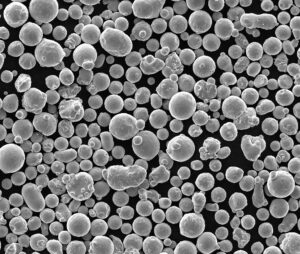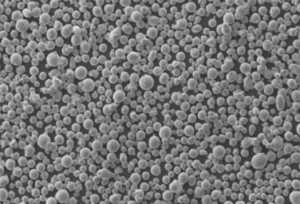BNi-7粉末の概要
高温用途のろう付け合金やろう付け材料を研究していると、おそらく次のようなものに出会ったことがあるだろう。 BNi-7粉末.BNi-7は特殊なニッケル基ろう付け合金で、優れた耐食性と耐酸化性、そして強靭で信頼性の高い接合部の形成能力により、さまざまな産業で広く使用されています。しかし、BNi-7が優れている理由は何でしょうか?また、なぜさまざまな分野でこれほど人気があるのでしょうか。
BNi-7粉末は、ニッケル、リン、ホウ素を含む複数の元素のブレンドです。これらの元素の組み合わせにより、融点の低いろう付け合金が作られ、デリケートな高温環境での精密ろう付けに最適です。航空宇宙部品でも高性能エンジンでも、BNi-7はろう付けのニーズに応える万能のソリューションです。
このガイドでは、BNi-7 粉末の化学組成から実際の用途まで、あらゆる側面から深く掘り下げていきます。また、製品の比較やトップクラスのサプライヤーについてもご紹介します。
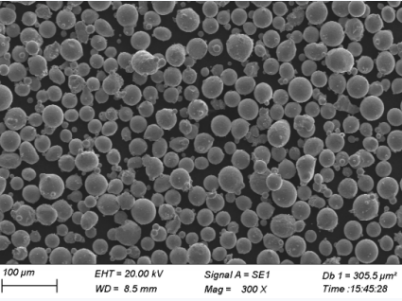
BNi-7粉末の組成
BNi-7粉末の能力を十分に理解するには、その組成を理解することが極めて重要である。その 主要成分 を含む。 ニッケル、リン、ホウ素この合金は、工業用途に望ましい特性を持つユニークな合金を形成する。
以下はBNi-7粉末の組成をまとめた表である。
| エレメント | 構成比(%) |
|---|---|
| ニッケル(Ni) | 92.8-93.8 |
| リン (P) | 6.8-7.2 |
| ホウ素(B) | 0.03-0.06 |
ニッケル(Ni)
主要元素であるニッケルは、BNi-7に優れた耐食性と耐酸化性を与えている。これは合金の骨格であり、高応力環境での耐久性を保証する。
リン (P)
リンは合金の融点を下げ、精密なろう付け作業に使用しやすくする。また、強靭で延性のある接合部の形成にも寄与する。
ホウ素(B)
微量ではあるが、ホウ素は溶融範囲をさらに狭めるのに役立ち、合金を加熱したときに流れやすくする。
BNi-7粉末の特性と性質
BNi-7のようなろう付け合金を選択する際には、以下の点を考慮することが重要である。 物理的および機械的特性.BNi-7がエンジニアにとって魅力的なのは、その組み合わせにある。 低融点、高耐食性、強力な機械的特性.
BNi-7パウダーを定義する主な特徴を説明しよう。
| プロパティ | 価値 |
|---|---|
| 融点 | 875°C - 890°C |
| 密度 | 8.7 g/cm³ |
| 耐食性 | 様々な環境に対応 |
| 耐酸化性 | 高温でも高い |
| フロー特性 | 融点での優れた流動性 |
| 関節の強さ | 高い機械的強度 |
融点
BNi-7は融点が低い(約875℃)ため、精度が重要なろう付け工程で使用できる。これは、極端な高温に耐えられない部品に特に有効である。
耐食性と耐酸化性
BNi-7パウダーの際立った特徴のひとつは、次のような点である。 優れた耐食性 そして 酸化たとえ高温でも。そのため、航空宇宙や化学処理工場など、部品が過酷な条件にさらされる環境に最適です。
機械的強度
融点が低いにもかかわらず、BNi-7で形成されたろう付け接合部は非常に強い。この機械的強度により、BNi-7で接合された部品は大きな応力に耐えることができ、耐荷重用途に適しています。
BNi-7粉末の利点
BNi-7粉末の組成と特性について見てきたが、次はその特性について調べてみよう。 利点 他のろう付け合金よりもなぜ多くの用途で優れているのでしょうか?
| メリット | 説明 |
|---|---|
| 低融点 | 精密ろう付け用途での作業が容易 |
| 耐食性と耐酸化性 | 過酷な環境でも劣化することなく使用可能 |
| 高い関節強度 | 部品間の強固で信頼性の高い接続を提供 |
| 優れた流動性 | ろう付け温度で良好に流動し、完全な被覆を確保 |
| 汎用性 | 航空宇宙、自動車、エレクトロニクスなど様々な産業で使用可能 |
低融点
BNi-5やBNi-2のような他のろう付け合金と比較して、BNi-7は 融点低下で適用しやすくなっている。 デリケートで熱に弱いアプリケーション.これは、過度の熱でゆがむ可能性のある薄い部品や小さな部品を扱う場合に特に有効である。
耐食性
BNi-7は、以下のような環境下で他の多くの合金よりも優れた性能を発揮する。 腐食と酸化そのため、信頼性が重視される化学処理プラント、ボイラー、航空宇宙用途の最有力候補となっている。
機械的強度
ストレスに耐えるろう付け継手が必要な場合、BNi-7はそれを実現します。その 高い機械的強度 は、より軟らかく弱い合金よりも、荷重を支える用途に適した選択肢となる。
比較 BNi-7パウダー 他のニッケル基ろう材との併用
ろう付け合金を選択する際には、BNi-7と他の選択肢を比較し、BNi-7がどの程度優れているかを確認することが役立ちます。以下は、BNi-7とBNi-1、BNi-2、BNi-3、BNi-4、BNi-5などの他のニッケル基ろう付け合金との比較表です。
| 合金 | 融点 (°C) | 耐食性 | 関節の強さ | ベストアプリケーション |
|---|---|---|---|---|
| BNi-7 | 875-890 | 素晴らしい | 高い | 航空宇宙、化学処理 |
| BNi-1 | 955-980 | 中程度 | 中程度 | 汎用ろう付け |
| BNi-2 | 970-995 | グッド | 高い | 高温アプリケーション |
| BNi-3 | 970-1005 | 素晴らしい | 非常に高い | ガスタービン、エンジン |
| BNi-4 | 995-1010 | 高い | 非常に高い | 航空宇宙、高ストレス用途 |
| BNi-5 | 1050-1070 | 低い | 非常に高い | 超高温アプリケーション |
BNi-7対BNi-5
一方 BNi-5 は接合強度が高いが、融点もはるかに高い(1050~1070℃)ため、次のような加工が難しくなる。 温度に敏感なアプリケーション.対照的に、BNi-7は融点が低いため、次のような用途に使われる。 精密ろう付けに最適.
BNi-7対BNi-2
と比べると BNi-2BNi-7は 融点低下 が、優れた接合強度と耐食性を維持します。用途によって 低熱負荷BNi-7は一般に より良い選択肢.
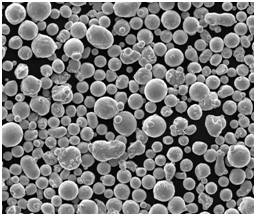
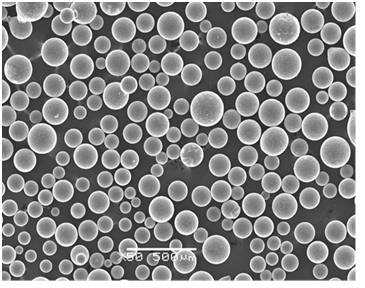
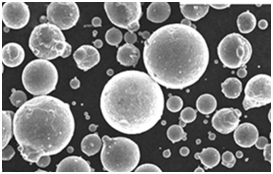
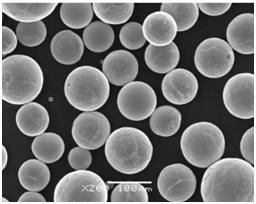
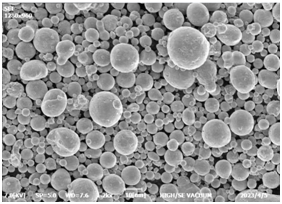

BNi-7粉末の用途
BNi-7は、そのユニークな特性のブレンドにより、幅広い産業分野で使用されている。主な特性のいくつかを見てみよう。 アプリケーション のBNi-7粉末:
| 産業 | 申し込み |
|---|---|
| 航空宇宙 | タービンブレード、エンジン部品、熱交換器の接合 |
| 自動車 | 排気システム、ターボチャージャー、燃料噴射装置のろう付け |
| 化学処理 | 腐食性化学薬品にさらされる部品の接合 |
| エレクトロニクス | ヒートシンク、RFシールド、その他デリケートな部品のろう付け |
| 発電 | ボイラー、タービン、発電所システムのろう付け部品 |
航空宇宙
の中で 航空宇宙産業BNi-7は、次のような重要部品のろう付けによく使用される。 タービンブレード そして 熱交換器高い強度と耐腐食性が不可欠である。これらの部品はしばしば 極限環境 高温と腐食性ガスにさらされる。
自動車
BNi-7粉末は 自動車産業 のようなろう付け部品用 排気システム, ターボチャージャーそして 燃料噴射装置.この合金は高温に耐え、腐食に耐えることができるため、これらの用途に最適である。 高性能アプリケーション.
BNi-7粉末の仕様と規格
BNi-7パウダーが入手可能
様々な グレードとサイズまた、さまざまな業界標準に準拠している。以下の表は 仕様書 BNi-7粉末については、メーカーやサプライヤーが一般的に従っている。
| 仕様 | 説明 |
|---|---|
| パウダーサイズ | 45-150 µm(一般的な範囲) |
| 適合規格 | AWS A5.8、AMS 4777、ISO 17672 |
| 梱包サイズ | 1kg、5kg、10kgをご用意 |
| フォーム | パウダー、ペースト、プリフォーム |
| 純度 | ニッケル含有率99%以上 |
規格
BNi-7パウダーは、以下のような団体の定める基準を満たさなければならない。 米国溶接協会(AWS) そして 航空宇宙材料規格(AMS) 一貫した品質とパフォーマンスを保証するために。例えば AWS A5.8 は、ろう付けに使用されるフィラーメタルの規格として広く認知されている。
BNi-7粉末のトップサプライヤーと価格
BNi-7粉末の評判の良いサプライヤーを見つけることは、特に重要なアプリケーションに取り組む場合には非常に重要です。ここでは トップサプライヤー BNi-7パウダーのおおよその価格ガイドを掲載しています。
| サプライヤー | 価格(kgあたり) | フォーム | 最小注文数 |
|---|---|---|---|
| ベスビオ火山 | $200-$250 | パウダー、ペースト | 1 kg |
| ウォール・コルモノイ | $220-$270 | パウダー | 5 kg |
| モルガン・アドバンスト・マテリアルズ | $230-$280 | パウダー、プリフォーム | 2 kg |
| ルーカス=ミルハウプト | $210-$260 | パウダー、プリフォーム | 1 kg |
価格
BNi-7パウダーの価格は通常、以下の通りである。 キログラムあたり200~280ドルサプライヤー、注文サイズ、形状(パウダー、ペースト、プリフォーム)によって異なる。価格は以下のような要因によって変動する。 純度, パウダーサイズそして 注文数量.
BNi-7パウダー使用の長所と短所
他の材料と同様、BNi-7 粉末にも、その性質がある。 利点 そして 制限.以下はその内訳である。 長所と短所 ろう付け用途でのBNi-7粉末の使用。
| 長所 | 短所 |
|---|---|
| 低融点 | いくつかの代替品に比べ高コスト |
| 高い耐食性 | 非鉄用途に限定 |
| 強力な機械的特性 | 特殊な取扱設備が必要 |
| 優れた流動性と流れ特性 | 少量入手は困難 |
メリット
BNi-7は以下の点で優れている。 耐食性, フロー特性そして 機械的強度に適している。 高性能アプリケーション 精度と耐久性が鍵となる。
デメリット
しかし、以下のような制限がある。 高価格 BNi-1やBNi-2のような、より単純なろう付け合金と比較して。また、BNi-1やBNi-2のような単純なろう材に比べ、調達が難しい傾向にある。 少量これは、趣味や小規模な店舗にとっては問題となりうる。
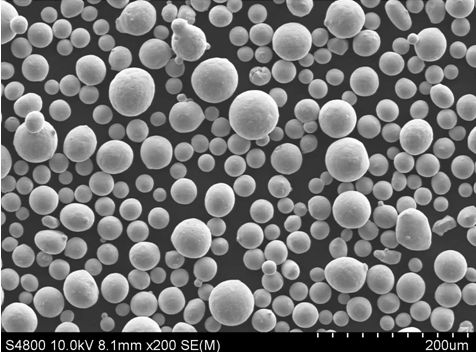
よくある質問
Q: BNi-7粉末は他のろう材と比較して、どのような利点がありますか?
A: BNi-7粉末は 低融点 そして 高耐食性精度と耐久性が要求される高性能用途に最適である。
Q: BNi-7粉末は自動車用途に使用できますか?
A: はい、BNi-7は自動車産業でろう付けによく使用されています。 排気システム, 燃料噴射装置そして ターボチャージャー.
Q: BNi-7粉末の融解温度範囲は?
A: BNi-7粉末の融点は以下の範囲である。 875°C~890°Cこれは、他のニッケル基ろう付け合金に比べて比較的低い。
Q: BNi-7粉末は高温用途に適していますか?
A: はい、BNi-7は高温に耐えることができ、優れた特性を持っています。 耐酸化性そのため、次のような用途に適している。 タービンブレード そして 熱交換器.
Q: BNi-7パウダーはどこで購入できますか?
A: BNi-7粉末は、次のような大手サプライヤーから入手可能である。 ベスビオ火山, ウォール・コルモノイ, ルーカス=ミルハウプトそして モルガン・アドバンスト・マテリアルズ.
結論
要約すると BNi-7粉末 は、次のような用途に優れた汎用性の高いろう付け合金です。 耐食性, 耐酸化性そして 機械的強度このため、以下のような幅広い業種に最適です。 航空宇宙 への 自動車.その 低融点 でさえ、精密なろう付けが可能である。 温度に敏感なアプリケーション.
ろう付けに関わらず タービンブレード, 排気システムあるいは 熱交換器BNi-7は安定した信頼性の高い結果をもたらします。BNi-7は、より単純な合金と比較すると高価格ですが、その優れた特性により、次のような用途に投資する価値は十分にあります。 高性能、高ストレス用途.
もしあなたが BNi-7粉末以下のような要素を考慮する必要がある。 純度, パウダーサイズそして サプライヤーレピュテーション.豊富なオプションから、お客様のニーズに最適なBNi-7をお選びいただけます。
